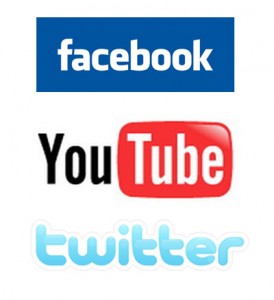Last year, social platforms surpassed the number of visits by Internet users when compared to the search giant Google. Google is the most popular search engine in town, if not the only search engine that really remains "standing". Top visited sites remain Facebook, Youtube, Twitter and then the rest.
Facebook and other social platforms have "user-generated" content. So from a user reach perspective, they are great tools for businesses. But individuals and companies will continue to use Google as a search engine to find relevant information. Hence the need for search engine optimization and top rankings. But since top rankings can benefit from links from social networks, businesses benefit from incorporating search engine optimization and social networking together.
Google's got competition in Facebook for sure from a simple "user" number perspective which I can see why. Grandmas who'd never go to Google to search for anything would definitely go to Facebook to see pictures of their grandkids. Right?
So is it really surprising then that Facebook will continue to lead the "number of users" statistics? But when it comes to finding anything at all; from cooking tips to products to vacation spots, Google's still on top… FOR NOW.
